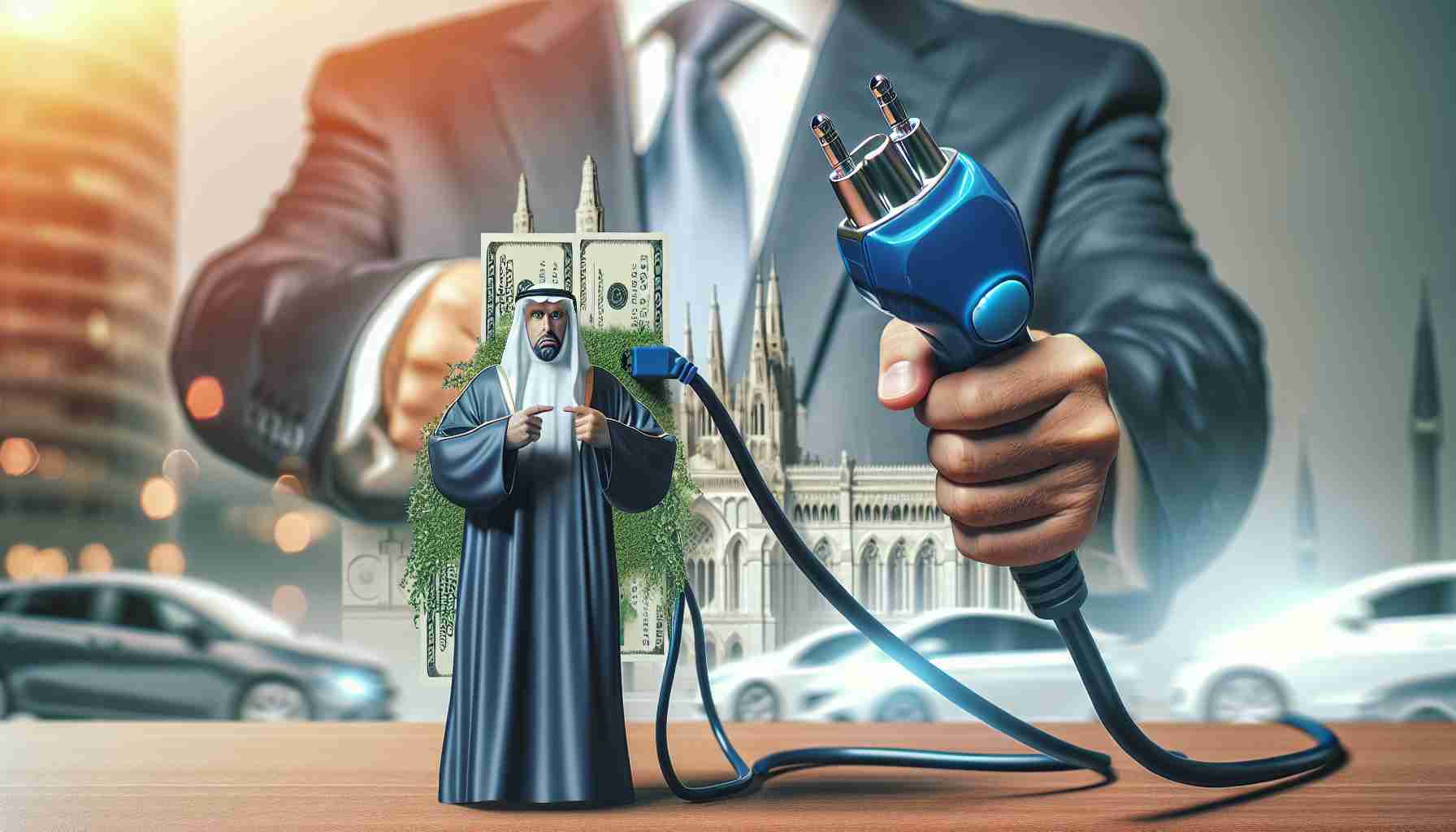- The FHWA has suspended state plan approvals for the NEVI program, causing uncertainty for EV charging network expansion.
- This pause affects states’ ability to access $5 billion in funding for developing EV charging infrastructure.
- Legal concerns have been raised regarding the FHWA’s decision and its alignment with existing NEVI legislation.
- Current EV charging projects may proceed, but future investments by states and companies are now uncertain.
- A lack of charging infrastructure could hinder the widespread adoption of electric vehicles in the U.S.
- The future of EV adoption depends on the FHWA’s ability to clarify and resume approval processes promptly.
In a surprising twist, President Trump’s Department of Transportation has hit the brakes on a vital initiative aimed at expanding electric vehicle (EV) charging networks across the United States. The Federal Highway Administration (FHWA) recently announced the suspension of approval for state plans under the $5 billion National Electric Vehicle Infrastructure (NEVI) program, which was designed to accelerate the deployment of much-needed charging stations.
In a letter to state transportation departments, the FHWA stated that approval of deployment plans would remain on hold until a new guidance is issued, leaving states in a state of limbo regarding their funding strategies. While states had already developed plans to access these crucial funds, the potential disruption raises significant concerns among EV advocates and industry leaders.
Experts are questioning the legality of this decision, suggesting that the administration’s approach may conflict with existing legislation governing the NEVI program. This uncertainty could hamper progress toward building the robust infrastructure necessary for the widespread adoption of electric vehicles.
As charging station rollout faces obstacles, this pause could dramatically slow down plans that were previously set into motion. Though current projects won’t be affected immediately, the uncertainty has cast a shadow over investments states and private companies planned to make, intensifying the urgency for a clearly defined path forward.
The potential repercussions of this pause are clear: without sufficient charging infrastructure, the transition to electric vehicles may stall. The future of EV adoption in America hinges on how quickly the FHWA can clarify its stance and restore momentum toward building a reliable network of charging stations across the nation.
Electric Vehicle Charging Network Expansion: What You Need to Know Now!
Overview of the Halt in EV Charging Infrastructure Expansion
The recent suspension of state plans under the National Electric Vehicle Infrastructure (NEVI) program by the Federal Highway Administration (FHWA) poses critical challenges for electric vehicle (EV) adoption in the United States. This $5 billion initiative was instrumental in establishing a nationwide network of EV charging stations, essential for the growing need of EV infrastructure as more consumers opt for electric vehicles.
Pros and Cons of the Current Situation
# Pros:
1. Time for Reevaluation: The pause allows for a reexamination of the program to ensure that it aligns with the latest technological advancements and market needs.
2. Legal Review: The administration can assess the legality of existing plans, which may prevent future conflicts and lawsuits.
# Cons:
1. Stalled Progress: States that had prepared comprehensive plans now face uncertainty, risking delays in deployment and reduced investor confidence in EV infrastructure.
2. Reduced EV Adoption: A lack of charging stations could deter consumers from purchasing electric vehicles, causing a setback in the transition to sustainable transportation.
Market Forecasts & Trends
Experts predict that if the suspension lasts longer than expected, the market for EV sales could stagnate. According to recent studies, a robust charging infrastructure is crucial for achieving the U.S. goal of having 50% of vehicle sales be electric by 2030. Delays in charging station rollout could result in a significant drop in EV market penetration.
Key Questions Answered
1. What are the implications of the FHWA’s decision on state EV plans?
The implications are severe; states that were ready to implement charging infrastructure face funding uncertainties. The hold on approval can lead to delays in projects designed to support EV adoption, impacting overall sustainability goals.
2. What is the expected timeline for new guidance from the FHWA?
Currently, there is no specified timeline for when new guidance will be issued. The FHWA has indicated that it is working on providing a clearer framework but has not communicated any specific deadlines.
3. How might this decision affect consumer sentiment towards EVs?
Consumer sentiment could degrade if the public perceives a lack of charging stations. Increased uncertainty may lead potential buyers to hesitate in purchasing electric vehicles, fearing they won’t have adequate access to charging resources.
Innovations and Future Considerations
As states and private entities await further directives, there is a growing push for innovative charging solutions. Many companies are exploring:
– Fast Charging Technology: Newer models capable of charging EVs in under 30 minutes could alleviate some concerns, provided the infrastructure exists.
– Wireless Charging Stations: This technology is still in development but could eliminate physical charging stalls altogether.
Security and Sustainability Aspects
The energy security of the nation is at stake as this pause might encourage a continued reliance on fossil fuels. Sustainability goals set forth in various states could also be undermined if the EV infrastructure does not expand as planned.
Conclusion
The future of electric vehicles hinges on a clear path forward regarding infrastructure investments. The recent decision by the FHWA introduces uncertainty that could stifle growth in this critical sector. It is crucial for the government to expedite guidance to alleviate state concerns and encourage both consumer and investor confidence in electric vehicles.
For further reading, visit FHWA for updates on infrastructure policies and more insights.



















